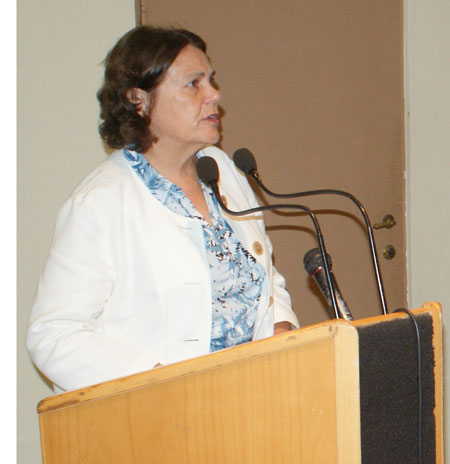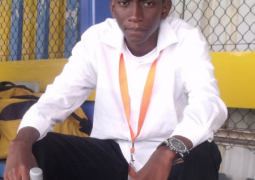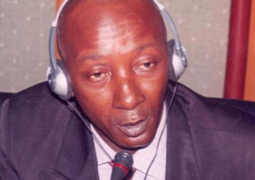
The outgoing deputy chief of mission at the United States embassy in Banjul has expressed her views in the much-talked about issue of homosexuality, stating in the strongest terms that “everyone has the right to marry and be a couple with anybody they like to be couples with.”
Cynthia Gregg, who was speaking in an exclusive interview with this reporter, said the right of homosexuals has to be recognized because, as she put it, they have rights to stay with anyone.
“First of all, I don’t understand the total condemnation of homosexuality, since it has been proven that one out of three or four people are homosexual. I don’t understand how you can say or how Africans can say that it has not existed; that is like saying you are not black, I’m not white,” he stated.
According to him, the issue of homosexuality in the United States is at the forefront right now.
“And I’m very proud of President Obama’s move in that he said he does recognize homosexuals, he does recognize their partners,” Gregg added.
“What I have found is that there is so much misunderstanding about homosexuals,” she stated.
For the outgoing deputy US chief of mission, “some of the things one needs to understand in Africa is that homosexuality exist; they are not a root cause of pedophilia or any type of sexual problem; that you do have to recognize their rights, because they have rights to stay with anyone else.
“I support Obama’s view on gay marriage, and I believe that everyone has the right to marry and be couples with anybody they like to be couples with. I believe that in a free society, even if you meet a 53-year-old Chinese lady, you have every right to be a couple with that lady,” she noted.
Outgoing US deputy ambassador speaks
The Point: You have been in The Gambia as US deputy chief of mission, reports say for three years. What would you list among your achievements during your stint at the US embassy in Banjul?
Cindy: Well, I will list among my achievements many things including training young journalists such as you. One of the things that I started when I came here was that, after two weeks, I told one of the staff at US embassy that I want to have a youth group like I did in Brazaville; and that I wanted to work with about 10-12 people in reading books, doing critical analysis; interpretation; public speaking and writing skills.
As you know, you are one of those who were with me along that time. I am proud of all of you, for your achievements. When I look around today and see all of you, I feel so proud. Mariama Njie, after one year left for her law degree; Naffie also in law school, and you (MK) doing journalism and mass communication and Khadija Jawara going to journalism school, and Sait Matty Jaw, graduated with BSc in Political Science.
I think my achievement has been in working with the youths of The Gambia.
One of the things I always like to say is that The Gambia does not have oil, gold, or diamonds, but they have wonderful resources and, that is, the intelligent young people in this country.
Another of my achievements would be the American Corner, and working with different women groups such FAWEGAM, GAMCOTRAP, FLAG and women gardeners helping them set up bank accounts, helping them understand their rights, among a host of others.
The Point: As you leave the Smiling Coast of Africa, what memories are you taking away?
Cindy: I am going to take a lot of happy memories. This was my third posting in Africa, and The Gambia by far was the best African country that I have ever lived in or have ever visited. The reason why I say that is because it is safe, it is clean, easy to get around, and the people are absolutely wonderful. I really enjoyed working with youths. When I first started opening the American Corner, I went over to Comium and said you know it is going to be nice to have a library here, and Comium said, ‘yes’ that’s good, we will give you the space, and we will pay for everything. I have never found that in any African country. I have also seen here a lot of entrepreneurs coming up, and that is really exciting.
The Point: What are your views on the US-Gambia relationship?
Cindy: The US-Gambia relationship has always been fine. I feel that I have really sharpen the belt, and I feel that I have improved them because one of the things that I have done so well is working with college and high school age youths.
Not only have I learnt about Gambian culture, but they also learned about the American culture. We have lots of wonderful discussions about what is democracy, what is best for The Gambia and Africa. One of the strongest things I have done to strengthen the relationship is that I engaged these young people in thinking of what can I do for The Gambia.
The relations are growing from strength to strength, with both countries benefitting.
The Point: I know you are a diplomat, meaning you cannot say certain things in public. I want to ask - what are your candid views about the state of freedom of expression and freedom of the press in The Gambia?
Cindy: I believe that the freedom of the press here goes both ways. One of the things that I found when I first came here was that there were so many newspapers, but none of the articles have any fact-checking; none of them had anything that would make someone say ‘wow this person is really thinking’.
So I worked with journalists quite a bit. One of the things this country needs is a school of journalism to teach journalists how to analyze, and how to critique information, how to separate fact from fiction, how to develop their own set of writing skills. So I think this is one of the things that we are missing in the Gambian media.
On the other hand, there is repression from the government, and I said this in my last interview. When the government does hear something bad about itself, it should not react defensively; it should say ‘oh! Wait a minute. What is the problem? Maybe we can handle this in a different way; let us see what is going to be better for everybody.
So the problem is two-fold. You’ve got journalists who I feel at this point are not well-trained, because they don’t separate fact from fiction; they don’t write that well; they don’t do any type of underground investigation. All that they do is to write down what they hear from another news source, and they print it without even checking it.
There is repression from the government, which I would like to see lifted, but I think that will be when you get a better shade of journalists here.
The media is improving itself and really trying, but what they need are some fantastic writers and people who can take information and critique it, analyze it and investigate it. The media in The Gambia need people like Cristinia Amanpour of CNN here; somebody who can look at a situation and not get so involved in it. Gambians are so emotional; they take things as their own personal feelings. What you need are some good journalists who can look at things and say this the way it is and not putting their own feelings into it.
I think the media is starting to move towards that, because I have seen big improvements in the journalists and in some of the articles they are writing. One of the things that still bothers me is they don’t question things.
The Point: The United States and Britain have both said they will consider gay rights when handing out aid, a move that has infuriated many African nations who consider homosexuality “un-African”. What is your take on this taking into account that you have been in a country (The Gambia) that has voiced its total condemnation of gay marriages?
Cindy: First of all, I don’t understand the total condemnation of homosexuality. It has been proven that one out of the three or four people are homosexual. I don’t understand how you can say or how Africans can say that it has not existed; that is like saying you are not black, I’m not white.
The homosexuals issue in the United States is at the forefront right now, and I’m very proud of President Obama’s moves in that he said he does recognize homosexuals, he does recognize their partners.
What I have found is that there is so much misunderstanding about homosexuals. We have a lot of Americans in prison, but all of these Americans who are imprisoned were pedophiles but none of them are homosexuals; they were all heterosexuals.
So I think some of the things one needs to understand in Africa is that homosexuality exists; they are not a root cause of pedophilia or any type of sexual problem; that you do have to recognize their rights, because they have rights to stay with anyone else.
I support Obama’s views on gay marriage, and I believe that everyone has the right to marry and be couples with anybody they like to be couples with. I believe that in a free society, even you meet a 53-year-old Chinese lady, you have every right to be a couple with that lady.
The Point: How would you describe your relationship with the staff of the US embassy in Banjul?
Cindy: I love my staff, and I hope they also love me. They keep saying that they are going to miss me. I love my staff! I really think that I have developed a good relationship with them. We had a farewell party last Saturday, and a lot of good things were said about me; but one of the things that several people said was that it was until when I got here that the staff started to feel like a family; that I brought everybody from the different sectors together; that we started to work together as a team, and I am really proud of that.
The Point: Finally, what is your best souvenir in The Gambia?
Cindy: One of my best souvenirs is the facebook page created by ‘Cindy’s Kids’ where I have my kids here in The Gambia speaking to kids who I worked with in Congo Brazzaville, exchanging views and talking to each other.
I also had several of my kids from Congo Brazzaville coming here to The Gambia and talk with people at the American Corner. So I think this cultural exchange that I have been able to start between Africans and Africans is very important, more so between Africans and Americans.
Read Other Articles In Article (Archive)



